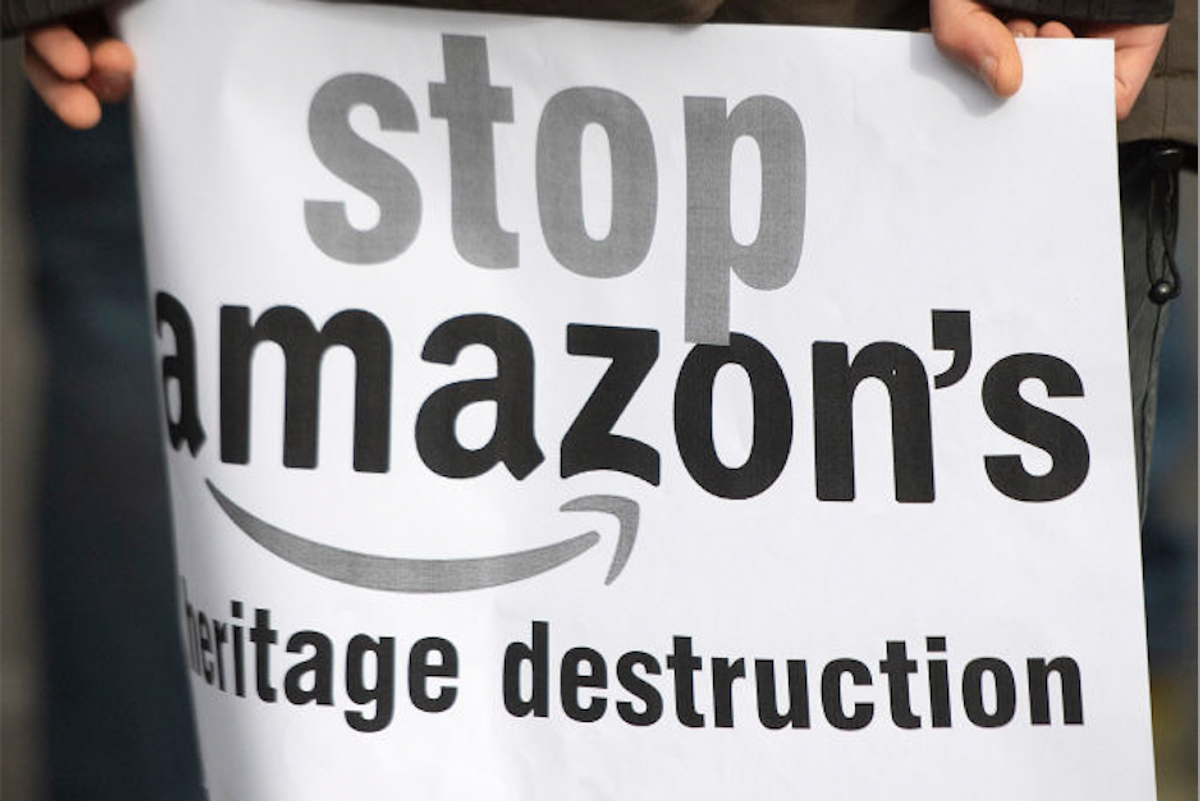South Africa's Khoi-San Community Fight Amazon's African HQ
The American company's plan to build their African headquarters is interrupted as it would fall on sacred Khoi-San land.

American e-commerce company Amazon has plans to build their first African headquarters in Cape Town, South Africa — and the locals are less than impressed. Protestors representing the Khoi and San indigenous communities stood before the Cape Town High Court over the weekend and submitted a letter requesting a halt on Amazon's 70,000 square meters, R4 billion construction plans, which was granted.
South Africa's Khoi-San population are known to be the earliest inhabitants of Southern Africa, their history dating back over 2,000 years ago. The multi-billion dollar company's African headquarters would be built on land that they regard as sacred, and the community continues to fight this new-age colonization.
Members representing the Goringhaicona Khoi Khoin Indigenous Traditional Council (GKKITC) and the Observatory Civic Association gathered on Saturday, March 19th. The action is being made against project developers Liesbeek Leisure Properties (LLP) Trust, the City of Cape Town, as well as Western Cape Province. The three-day court case will also see legal action being taken against First Nations Collective (FNC), a group of Khoi-san who support Amazon's plans. Judge Patricia Goliath said in her ruling, "This matter ultimately concerns the rights of indigenous peoples [...] The fundamental right to culture and heritage of indigenous groups, more particularly the Khoi and San First Nations Peoples, are under threat in the absence of proper consultation," as she granted the temporary halt on the multi-billion rand development.
The First Nations argue that the "world-class facilities where [they] will be empowered" as promised, would greatly improve the community's way of life. According to The Daily Maverick, the groups are intended to receive: an indigenous garden to grow traditional medicinal plants, an amphitheatre where the group can perform traditional song and dance, and a cultural media centre.
"Our heritage is not for sale", counter-protesters chanted over the weekend as the community continue to fight for their representation in South Africa. Species including the African clawed frog, Cape galaxias (an indigenous fish), and several species of birds and insects live in and along the river and would be disturbed too. Those protesting the build have celebrated their first victory, as a halt in development was granted last week. Activist Tauriq Jenkins, said on the decision, "We are celebrating at the epicentre of liberation and resistance in defence of our country. We welcome everyone who would like to join us as we acknowledge the halting of the current destruction on the site.”

